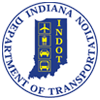The U.S. Department of Transportation’s new Charging and Fueling Infrastructure (CFI) Discretionary Grant Program will provide $2.5 billion over five years to a wide range of applicants, including cities, counties, local governments and tribes. This round of funding makes up to $700 million from Fiscal Years (FY) 2022 and 2023 available to strategically deploy EV charging and other alternative vehicle-fueling infrastructure projects in publicly accessible locations in urban and rural communities, as well as along designated Alternative Fuel Corridors (AFCs).
The CFI Discretionary Grant Program builds on the $5 billion National Electric Vehicle Infrastructure (NEVI) Formula Program, for which the Federal Highway Administration (FHWA) published finalized minimum standards earlier this month. EV chargers constructed with CFI funds must adhere to those same standards, a requirement that supports a consistent charging experience for users and ensures that our national charging network is convenient, reliable and made in America.
While the NEVI Formula Program sends money to state DOT’s to build EV charging infrastructure along designated interstates, U.S. routes and state highways, the CFI Discretionary Grant Program awards competitive grants to projects serving a range of applicants to fill gaps in the national charging and alternative-fueling network and build out charging in communities.
A priority of the CFI Program is bringing EV charging into urban and rural communities – downtown areas and local neighborhoods, particularly in underserved and disadvantaged communities – as well as to designated alternative fuel corridors. FHWA seeks to fund projects that address environmental justice, particularly for communities such as rural and low- and moderate-income neighborhoods that may disproportionately experience the consequences of climate change and other pollutants.
The CFI Program includes two distinct grant funding categories and requires that 50% of the funding over five years is made available for each:
· The Community Program will provide $1.25 billion to strategically deploy publicly accessible EV charging infrastructure and hydrogen, propane or natural gas fueling infrastructure in communities. Infrastructure may be located on any public road or in other publicly accessible locations such as parking facilities at public buildings, public schools, public parks or in publicly accessible parking facilities owned or managed by a private entity.
· The Corridor Program will provide $1.25 billion to strategically deploy publicly accessible EV charging infrastructure and hydrogen, propane and natural gas fueling infrastructure along designated alternative fuel corridors (AFCs).
Eligible applicants and projects for both categories are outlined in a Notice of Funding published March 14, 2023. Applications are due by June 13, 2023.
FHWA and the Joint Office plan to conduct outreach to potential grant applicants regarding the CFI Program via webinars throughout March and April and will provide direct technical assistance to support states and communities as they build EV charging infrastructure through the NEVI Program and projects awarded under the CFI Program. Information on upcoming webinars can be viewed here.
